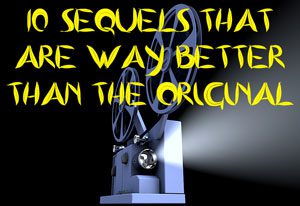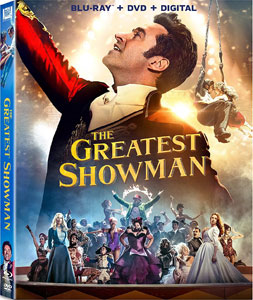“The Greatest Showman” (2017), now available for home viewing, takes us back to a time when anything is possible if you dream big and are persistent. Did such a time ever exist? That’s beside the point, as is what happened behind the scenes at Phineas Barnum’s circuses. (Don’t do an extensive internet search if you don’t want your illusions shattered.) Last year’s most-hyped musical is – within its own confines – a joyous celebration of dreams and achievements, with brief nods to hardships.
Written by Jenny Bicks and movie musical veteran Bill Condon (“Chicago,” “Dreamgirls”) and directed by Michael Gracey, “The Greatest Showman” is brazenly heavy handed out of the gates. The pauper Barnum (Ellis Rubin as a kid, Hugh Jackman as an adult) gets slapped by a high-society man for having the temerity to make his daughter, Charity (Skylar Dunn as a kid, Michelle Williams as an adult), laugh. In the pre-Barnum world, having a moment of fun is a societal sin. This is ostensibly the mid-19th century in New York City, but no title cards tell us this, because in truth we’re in a stylized time-out-of-time.
Like Barnum himself, his stage show’s various “freaks,” artists and singers have some broadly defined thing they are trying to rise above, and it would be silly except that the movie is so adorably earnest, it looks like it takes place inside gorgeous old paintings, and there isn’t a misfire among the songs by Benj Pasek and Justin Paul. I’m probably falling in with the norm by saying my favorites are “Never Enough” and “This Is Me.”
“Never Enough” — sung by Loren Allred, although Jenny Lind is played by Rebecca Ferguson — is performed twice. First, it’s an anthemic pronouncement that “Swedish Nightingale” Lind – a star in Europe — has arrived on the world stage. Barnum’s thorn-in-the-side newspaper theater critic (Paul Sparks) even says she redefines “singing,” and if you’re swept up in the grandeur of the Castle Garden theater, it’s hard to argue. The second time, Lind sings it like a broken heart is given a voice: She has just learned that Barnum loves show business (and perhaps his wife, but certainly show business) more than her.
“This Is Me” is performed by Keala Settle, who likewise plays the Bearded Lady on screen. I first heard this number at the end of the figure skating gala at the Winter Olympics, when all the skaters took the ice simultaneously. It’s a universal “I am who I am and f— you if you have a problem with that” anthem, and because it’s so big and catchy, it works for a 19th century ensemble that groups the Dog-Faced Boy with Black People as equally “freaky,” or for nations coming together on a special night in 2018.
The charm of Jackman often propels a film, and it’s essential that he propels the space between the songs here, because that’s what Barnum did: He pushed his enterprises forward through sheer will. The showman cleverly decides that since people laugh at society’s freaks anyway, why not put them in a stage show? That way, as he tells a young dwarf (Sam Humphrey), you can get paid. Barnum rounds up what are now sideshow clichés: the Bearded Lady, the Tattooed Man, Siamese twins, and unusually small and large people.

In a fascinating example of how the meaning of words can change, the critic – who Barnum says tells upper-crust society “what to think” (oh, to have that power) — rips Barnum’s show as being “a circus.” Barnum likes the sound of that, and embraces the term.
Surprisingly, “Showman” doesn’t focus on elephants and lions (oh my) – although we do see animals sprinkled about – but rather on the people of Barnum’s growing circus. Among the “freaks” of this era in America were just-plain black people, and for Barnum’s business partner Phillip Carlyle (“High School Musical’s” Zac Efron), it’s love at first sight with pink-haired trapeze flyer Anne (Zendaya, another Disney Channel veteran). As with 2016’s “La La Land,” this is a story of two pretty people falling in love. The stuffy society of their time throws up roadblocks; in “The Greatest Showman,” these come in the form of dirty looks.
But ultimately, a society that fears fun and/or change is no match for a deliciously belted-out musical number.

